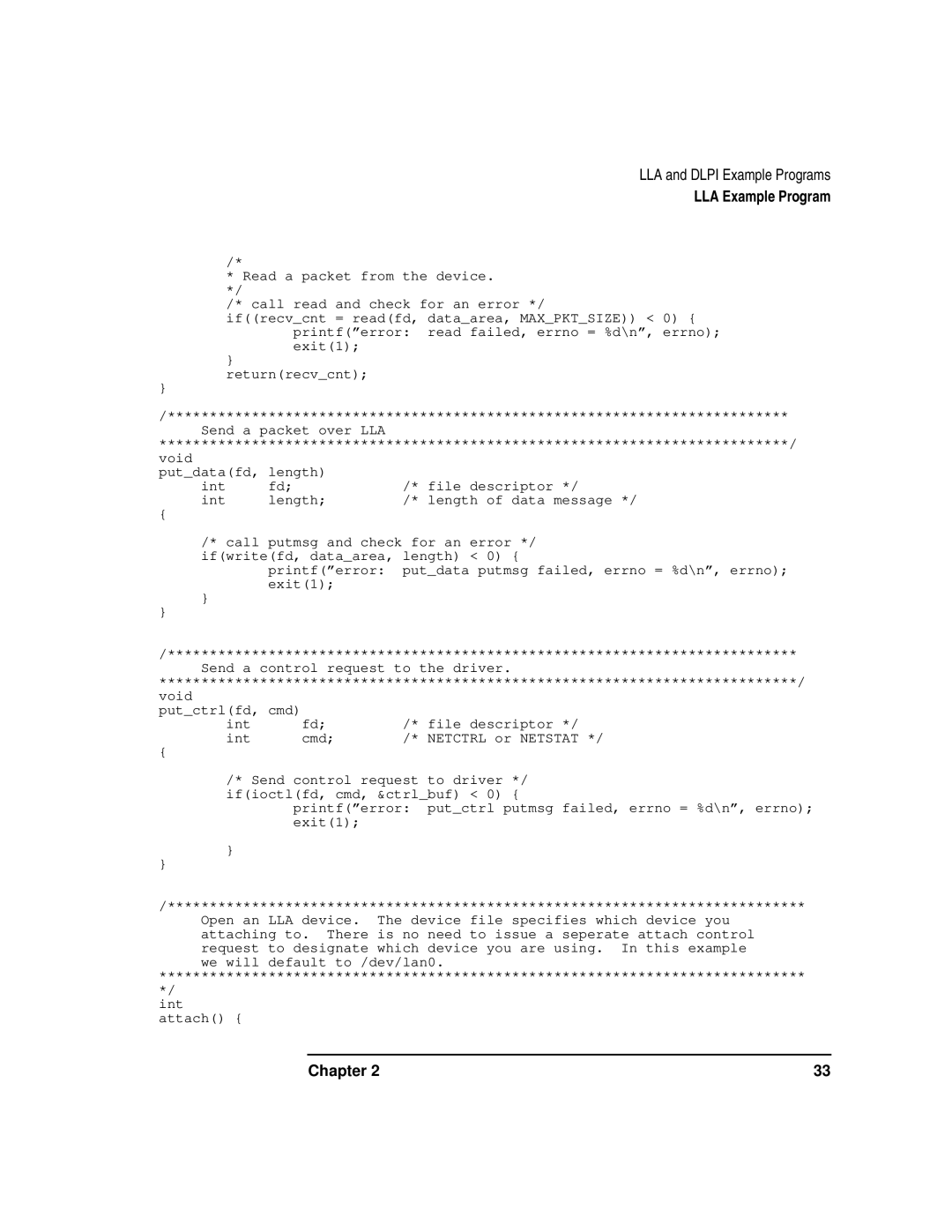LLA and DLPI Example Programs
LLA Example Program
/*
*Read a packet from the device.
*/
/* call read and check for an error */
if((recv_cnt = read(fd, data_area, MAX_PKT_SIZE)) < 0) { printf(”error: read failed, errno = %d\n”, errno); exit(1);
}
return(recv_cnt);
}
/************************************************************************** Send a packet over LLA
***************************************************************************/
void |
|
|
put_data(fd, length) |
| |
int | fd; | /* file descriptor */ |
int | length; | /* length of data message */ |
{ |
|
|
/* call putmsg and check for an error */ if(write(fd, data_area, length) < 0) {
printf(”error: put_data putmsg failed, errno = %d\n”, errno); exit(1);
}
}
/*************************************************************************** Send a control request to the driver.
****************************************************************************/
void |
|
|
put_ctrl(fd, cmd) |
|
|
int | fd; | /* file descriptor */ |
int | cmd; | /* NETCTRL or NETSTAT */ |
{ |
|
|
/* Send control request to driver */ if(ioctl(fd, cmd, &ctrl_buf) < 0) {
printf(”error: put_ctrl putmsg failed, errno = %d\n”, errno); exit(1);
}
}
/**************************************************************************** Open an LLA device. The device file specifies which device you attaching to. There is no need to issue a seperate attach control request to designate which device you are using. In this example
we will default to /dev/lan0.
*****************************************************************************
*/ int attach() {
Chapter 2 | 33 |
